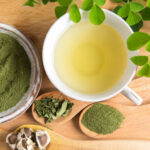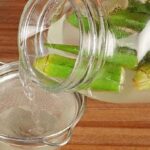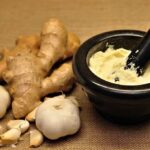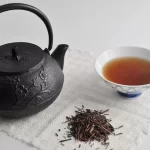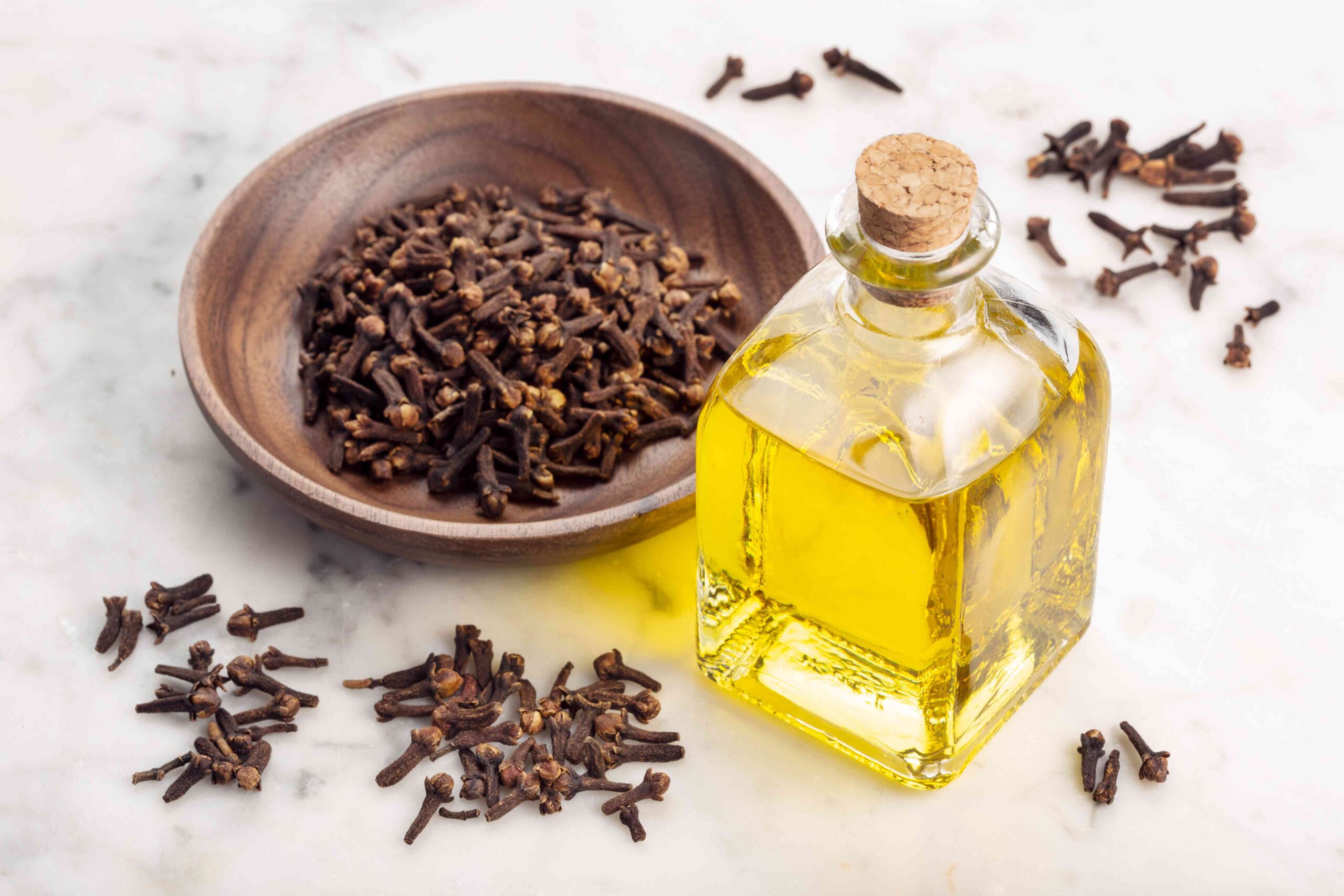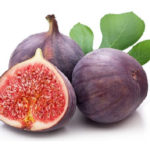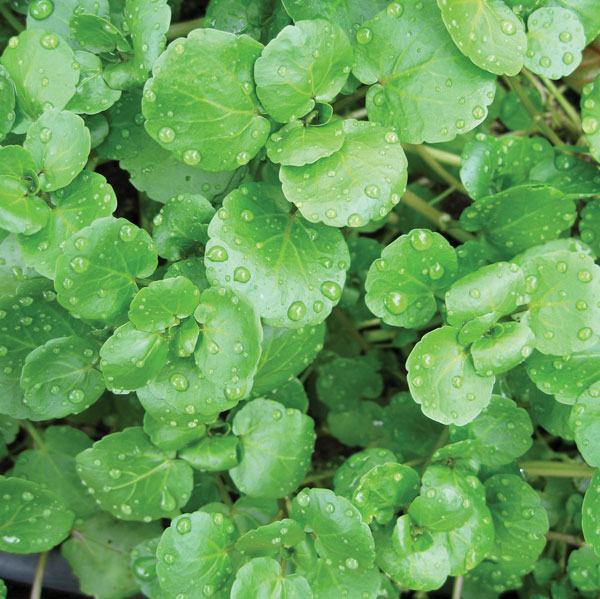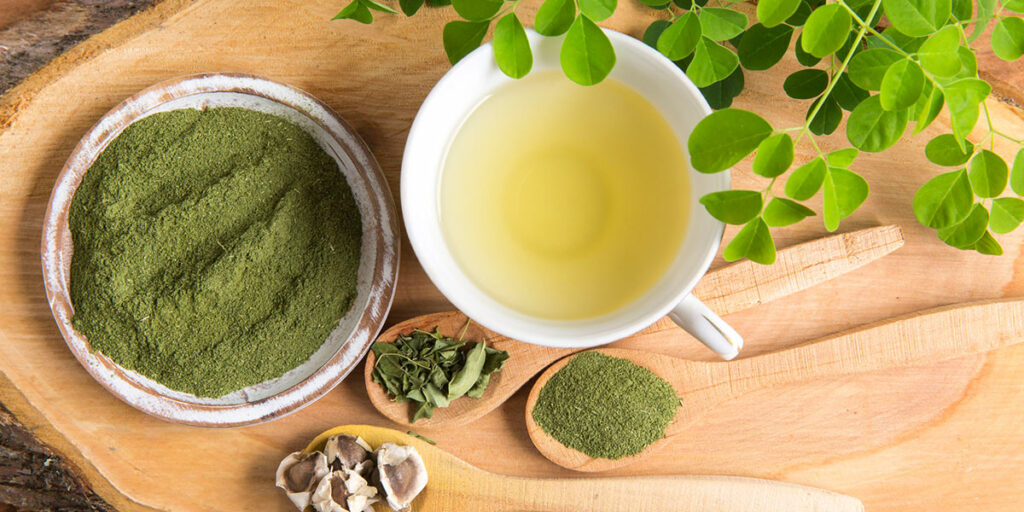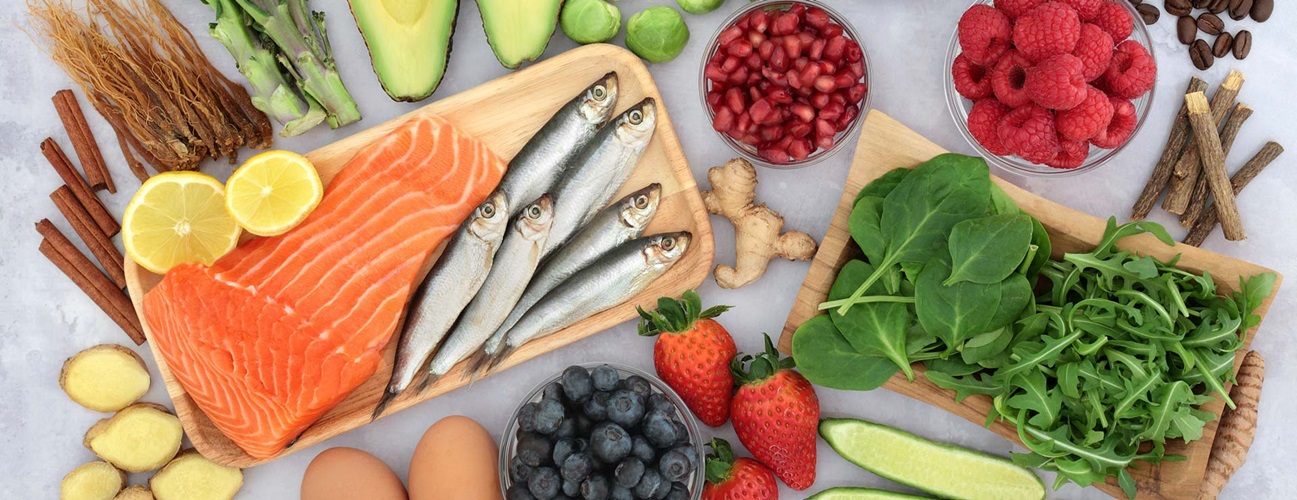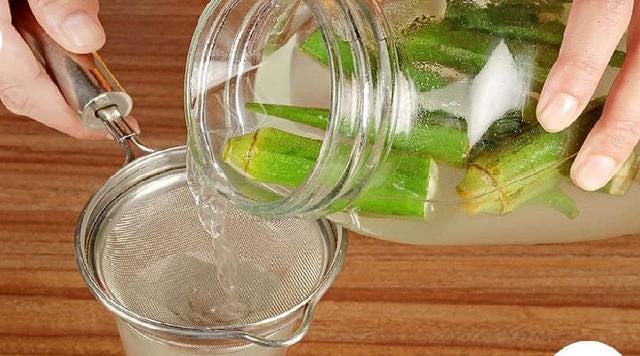Helpful Benefits of Cloves to The Vagina
Regarding the benefits of cloves to the vagina, there have been stories circulating about cloves and their supposed ability to tighten the vagina. The tale goes that if you soak cloves in water for a few days, then use the resulting water for vaginal washes, it can help tighten the vagina while also getting rid of infections and odors.
But the big question is, does this method actually work?
First off, cloves are packed with antioxidants, especially this thing called eugenol. This eugenol stuff is in high amounts in clove bud oil and clove leaf oil.
Some studies have found that cloves also have other compounds that are good for you, like flavonoids, thymol, benzene, and methylene chloride.
So, why should you care about all this? Well, antioxidants like eugenol can help fight off oxidative stress in your body. This means they can help prevent chronic diseases and keep you healthy as you get older. Plus, cloves are full of fiber, vitamins, and minerals, which are all good things your body needs.
But wait, there’s more! Some studies suggest that cloves might help with other things too. For example, they could help fight off harmful bacteria and fungus, keep your liver healthy, and even lower your blood sugar levels.
Now, let’s talk about the elephant in the room: does using cloves actually tighten the vagina? The short answer is no. But don’t worry, there are other ways you can help keep things tight down there.
Things like doing Kegel exercises or using natural remedies like vinegar baths or aloe vera gel can help restore vaginal tightness over time.
So, while cloves might not be the secret weapon for a tighter vagina, they still have a lot of health benefits that make them worth adding to your diet. Just remember, always talk to your doctor before trying any new herbal remedies or supplements to make sure they’re safe for you.
In this article, we’re going to dive deeper into this method, exploring whether it’s effective or not. And if it’s not, we’ll discuss potential alternative solutions. So, come along with me on this journey as we uncover the truth together.
Let’s start with understanding what cloves are.
Cloves are actually the flower buds of the clove tree, an evergreen plant. They come in both whole and ground forms and are commonly used to add flavor to dishes like pot roasts, hot beverages, and baked goods like cookies and cakes.
Beyond their culinary uses, cloves have a history in traditional medicine. They are known for their sweet and aromatic flavor, and they contain compounds that some studies suggest may offer health benefits. For example, research in animals indicates that compounds found in cloves could support liver health and help regulate blood sugar levels.
Moreover, cloves are rich in essential minerals like manganese, omega-3 fatty acids, fiber, and vitamins. They are also known for their antibacterial, antiseptic, antifungal, and analgesic properties, making them packed with antioxidants that can benefit overall health.
What Is Vaginal Tightening?
Vaginal tightening involves strengthening the pelvic muscles to increase elasticity and tightness in the pelvic floor. This can be particularly sought after by women, especially after childbirth, as they may desire to feel more confident and sexually empowered.
Tightening the vaginal muscles is often perceived as a way to enhance sexual pleasure and intimacy with a partner.
For many women, the sensation of a tight vagina can heighten pleasure during sexual intercourse. It’s the feeling of the vaginal walls snugly embracing their partner’s penis, creating a sense of intimacy and connection.
Conversely, when the vagina loses its tightness, sexual stimulation may diminish, leading some individuals to explore methods for vaginal tightening.
Naturally, there are several ways to achieve vaginal tightening, including exercises like yoga and Kegel exercises. These exercises target and strengthen the pelvic wall muscles, promoting tightness and improving sexual satisfaction.
However, some women may opt for surgical interventions such as vaginoplasty or labiaplasty to achieve vaginal tightening. These procedures involve surgical alteration of the vaginal tissues to enhance tightness and improve overall vaginal aesthetics.
SEE ALSO: Health Benefits of Sabudana
What Causes Vagina Loose?
Now, let’s delve into the factors that can contribute to vaginal looseness.
Yes, menopause can indeed contribute to vaginal looseness, among other factors such as engaging in high-impact sports and experiencing weight gain.
Menopause marks a significant hormonal shift in a woman’s body, particularly a decline in estrogen levels. Estrogen plays a crucial role in maintaining the elasticity and lubrication of vaginal tissues.
As estrogen levels decrease during menopause, the vaginal tissues may become thinner, less elastic, and more prone to dryness. This can result in a sensation of vaginal looseness or laxity.
Furthermore, factors like engaging in high-impact sports and experiencing weight gain can also contribute to vaginal looseness.
High-impact sports can put strain on the pelvic floor muscles, potentially leading to weakened muscle tone over time. Similarly, weight gain can exert pressure on the pelvic floor, causing the muscles to stretch and lose their firmness.
Regardless of the underlying cause, experiencing vaginal looseness can have a profound impact on a woman’s life, particularly her intimate relationships.
A perceived lack of muscle strength and tone in the vagina can lead to feelings of anxiety, low self-confidence, and even depression, especially if it affects sexual satisfaction and intimacy with a partner.
Pregnancy and childbirth are also significant contributors to vaginal looseness. During childbirth, the pelvic floor muscles and vaginal tissues undergo considerable stretching to accommodate the passage of the baby through the birth canal.
While this stretching is a natural part of the birthing process, it can result in a looser sensation in the vagina post-delivery.
It’s important to acknowledge that experiencing vaginal looseness following childbirth is common and normal. However, many women may not be aware of the measures available to address this issue.
Additionally, some may feel embarrassed or hesitant to discuss it, further complicating their ability to seek help and find solutions.
SEE ALSO: Benefits of Cloves Sexually
Ultimately, understanding the factors contributing to vaginal looseness and seeking appropriate support and treatment options can help women regain confidence and improve their overall well-being, particularly in their intimate relationships.
On the benefits of cloves to the vagina, there’s limited to no evidence to support the claim that cloves or cloves water can tighten the vagina. However, cloves do offer other notable benefits. Studies have confirmed the antiseptic properties of cloves, particularly in the form of clove oil.
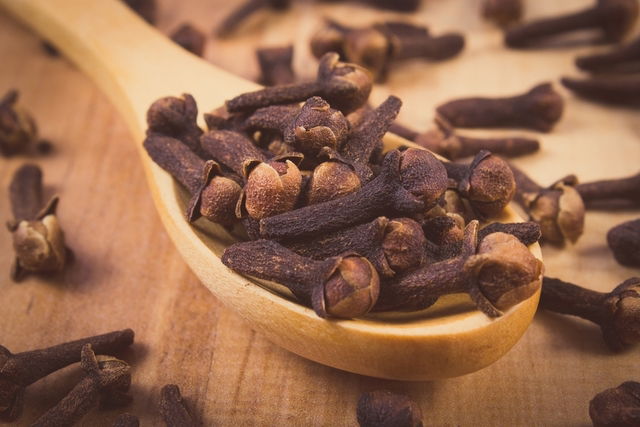
Clove oil contains eugenol, an active ingredient known for its natural anesthetic properties. Eugenol has the ability to numb and alleviate pain, making it a popular remedy for oral pain relief and dental issues.
Moreover, eugenol possesses natural anti-inflammatory properties, which can help reduce inflammation and discomfort. Research conducted in Britain found that eugenol is more effective at alleviating pain, inflammation, and infection compared to other types of analgesics.
While cloves may not directly tighten the vagina as some claims suggest, their antiseptic and anti-inflammatory properties make them valuable for various health purposes.
However, it’s essential to rely on scientifically proven methods for addressing vaginal tightening or other related concerns, rather than unverified remedies.
Consulting with a healthcare professional can provide personalized guidance and recommendations based on individual needs and circumstances.
Benefits of Clove to the vagina
While cloves are often associated with various health benefits, such as antioxidant and anti-inflammatory properties, there is limited scientific evidence to support specific benefits for vaginal health (benefits of cloves to the vagina).
However, some anecdotal claims suggest that cloves may offer potential benefits for vaginal health due to their antimicrobial and antifungal properties. Here are some potential ways cloves could contribute to vaginal health (benefits of cloves to the vagina):
- Antibacterial Properties: Cloves contain compounds like eugenol, which have natural antibacterial properties. These properties may help combat harmful bacteria in the vaginal area, potentially reducing the risk of infections.
- Antifungal Properties: Similarly, the antifungal properties of cloves may help inhibit the growth of yeast, such as Candida albicans, which can cause yeast infections like vaginal thrush. Cloves may help maintain a healthy balance of yeast and bacteria in the vaginal microbiome.
- Anti-inflammatory Effects: Inflammation in the vaginal area can lead to discomfort and irritation. Cloves’ anti-inflammatory properties may help alleviate inflammation and soothe the vaginal tissues.
- Odor Control: Some people believe that cloves can help neutralize vaginal odor due to their aromatic compounds. While there’s limited scientific evidence to support this claim, cloves’ pleasant fragrance may contribute to a sense of freshness.
- Promoting Circulation: Cloves have been traditionally used to improve blood circulation. Better circulation in the vaginal area may support overall vaginal health (benefits of cloves to the vagina) by promoting tissue repair and maintaining optimal function.
It’s important to note that while cloves have potential benefits for vaginal health, they should not be used as a substitute for medical treatment. If you’re experiencing vaginal discomfort, itching, unusual discharge, or other symptoms, it’s essential to consult with a healthcare provider for proper diagnosis and treatment.
Additionally, if you choose to use cloves or clove-based products for vaginal health, it’s crucial to do so with caution and in moderation to avoid irritation or adverse reactions.
How To Prepare Clove and Milk
Preparing clove and milk is a simple process that can be done at home with just a few ingredients. Clove, known for its aromatic and medicinal properties, combines perfectly with milk to create a soothing and flavorful drink. Here’s how you can prepare clove and milk:
Ingredients:
- Cloves (whole or ground)
- Milk (any type, such as cow’s milk, almond milk, or soy milk)
- Sweetener (optional, such as honey or sugar)
Instructions:
- Measure the desired amount of milk: Start by determining how much clove and milk mixture you want to make. Pour the appropriate amount of milk into a saucepan or microwave-safe container.
- Add cloves to the milk: If you’re using whole cloves, you can add them directly to the milk. For ground cloves, sprinkle the desired amount into the milk. The amount of cloves you use will depend on your personal preference and taste.
- Heat the milk: Place the saucepan on the stovetop over medium heat or put the microwave-safe container in the microwave. Heat the milk until it reaches your desired temperature, but be careful not to let it boil.
- Steep the cloves: Once the milk is heated, let the cloves steep in the milk for a few minutes. This allows the flavor and aroma of the cloves to infuse into the milk.
- Strain the mixture (optional): If you prefer a smoother drink without any clove remnants, you can strain the mixture through a fine-mesh sieve or cheesecloth to remove the cloves. However, if you enjoy the texture and appearance of cloves in your drink, you can skip this step.
- Sweeten to taste (optional): If you prefer your clove and milk drink to be sweetened, you can add honey, sugar, or any other sweetener of your choice. Stir the sweetener into the warm milk until it’s fully dissolved.
- Serve and enjoy: Pour the prepared clove and milk into a mug or cup. You can garnish it with a sprinkle of ground cinnamon or nutmeg for extra flavor, if desired. Sip and savor the comforting warmth and aromatic flavor of your homemade clove and milk drink.
Clove and milk is not only a delicious beverage but also offers potential health benefits. Cloves are rich in antioxidants and have been traditionally used for their anti-inflammatory and digestive properties.
Combining cloves with milk creates a soothing and nourishing drink that can be enjoyed any time of day. Whether you’re looking for a cozy beverage to enjoy before bedtime or a comforting treat on a chilly day, clove and milk is a delightful option to try.
Sides Effects of Cloves
Clove oil, like many herbal remedies, can pose certain risks and side effects. Research indicates that the use of clove oil may lead to various hazards, including:
- Skin Irritation: Direct contact with clove oil may cause skin irritation, redness, or allergic reactions in some individuals.
- Eye Irritation: Clove oil can also irritate the eyes if it comes into contact with them, leading to redness, itching, or discomfort.
- Respiratory Irritation: Inhaling clove oil vapor or using it inappropriately in large quantities may irritate the respiratory tract, causing coughing, wheezing, or difficulty breathing.
- Allergic Reactions: Some individuals may experience allergic reactions to clove oil, resulting in symptoms such as rash, itching, swelling, or hives on the skin.
- Toxicity: Clove oil is flammable and can be toxic if ingested. Swallowing clove oil, particularly in large amounts, can lead to serious health consequences, including poisoning or aspiration into the airway, which can be fatal.
- Increased Bleeding Risk: Clove oil may increase the risk of bleeding, particularly when used in combination with anticoagulant medications like warfarin. This can potentially lead to excessive bleeding or other complications.
Given these potential risks, it’s crucial to exercise caution when using clove oil or products containing clove extract. It’s advisable to discuss the use of any herbal products, including cloves, with a medical professional.
They can provide personalized advice, review potential side effects and interactions, and ensure safe and appropriate use. As with any herbal remedy or supplement, it’s essential to weigh the potential benefits against the risks and consult with a healthcare provider for guidance.

A graduate of Computer Science and Information Management Technology. Diploma – Caregiving, Certificates – Dementia and Diabetes Awareness and Management. A researcher, blogger, songwriter, singer and acoustic guitarist. Born in an environment where natural talents such as healing are imparted at our natural birth. This natural talents of healing is the result of our genetic inheritance and the training from family environment.


